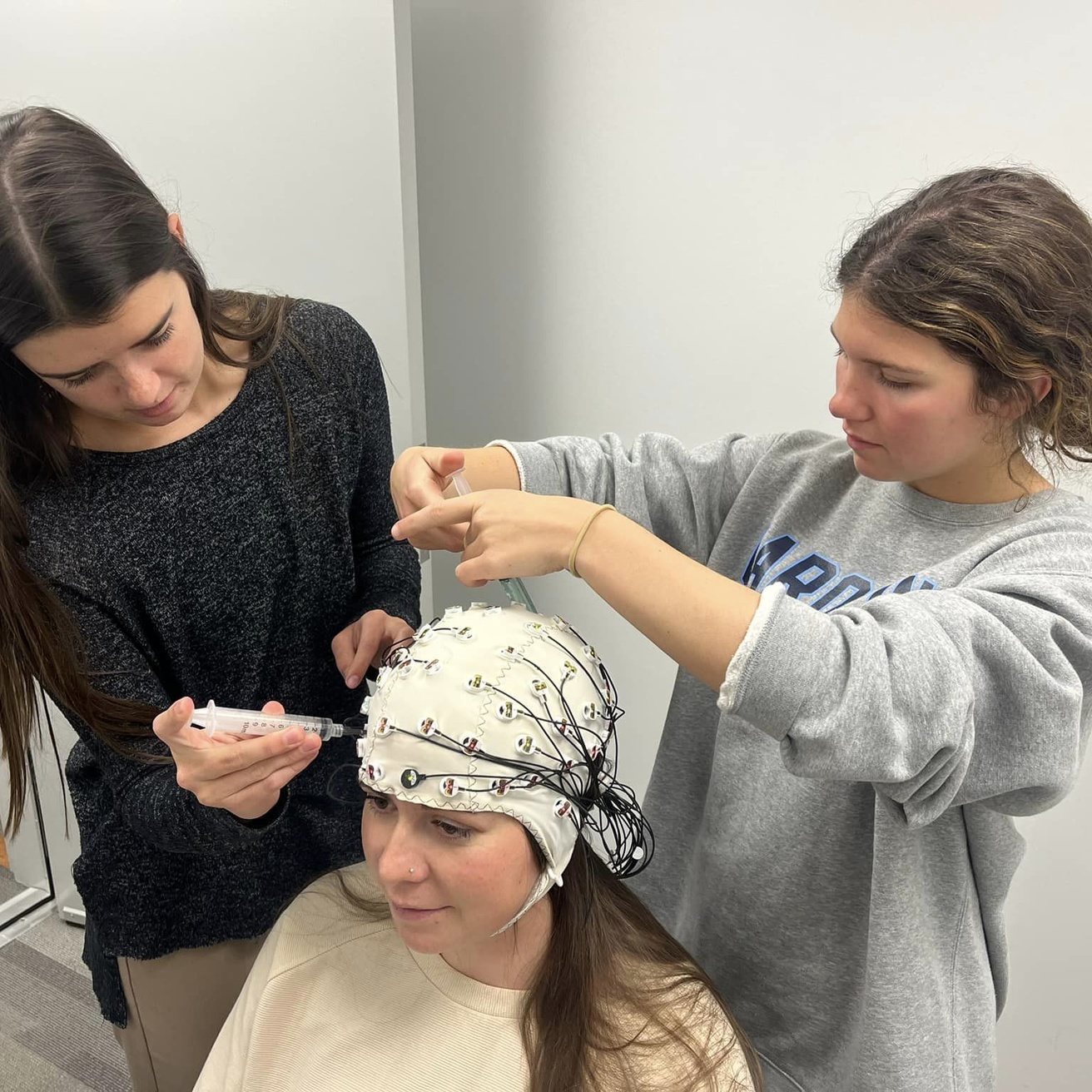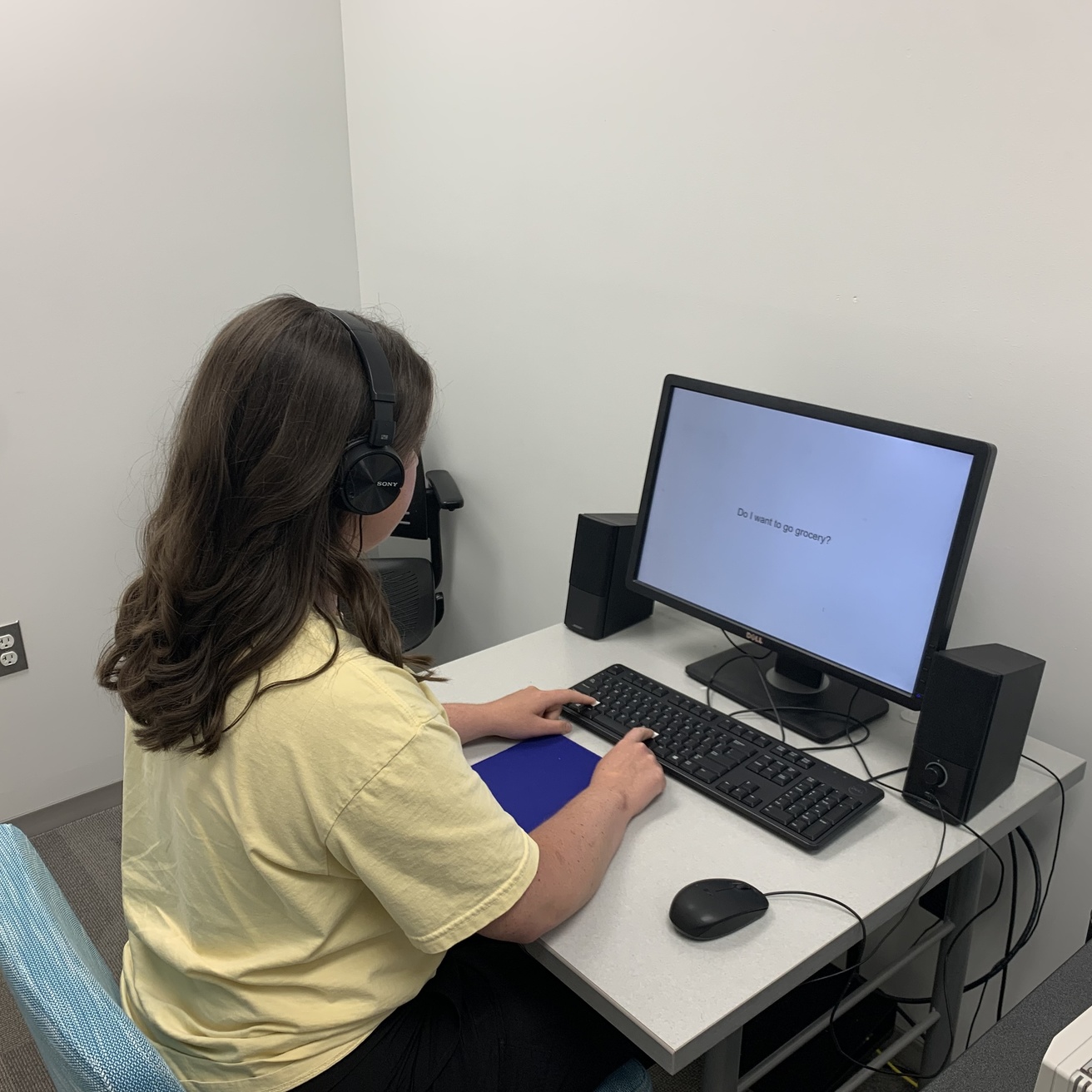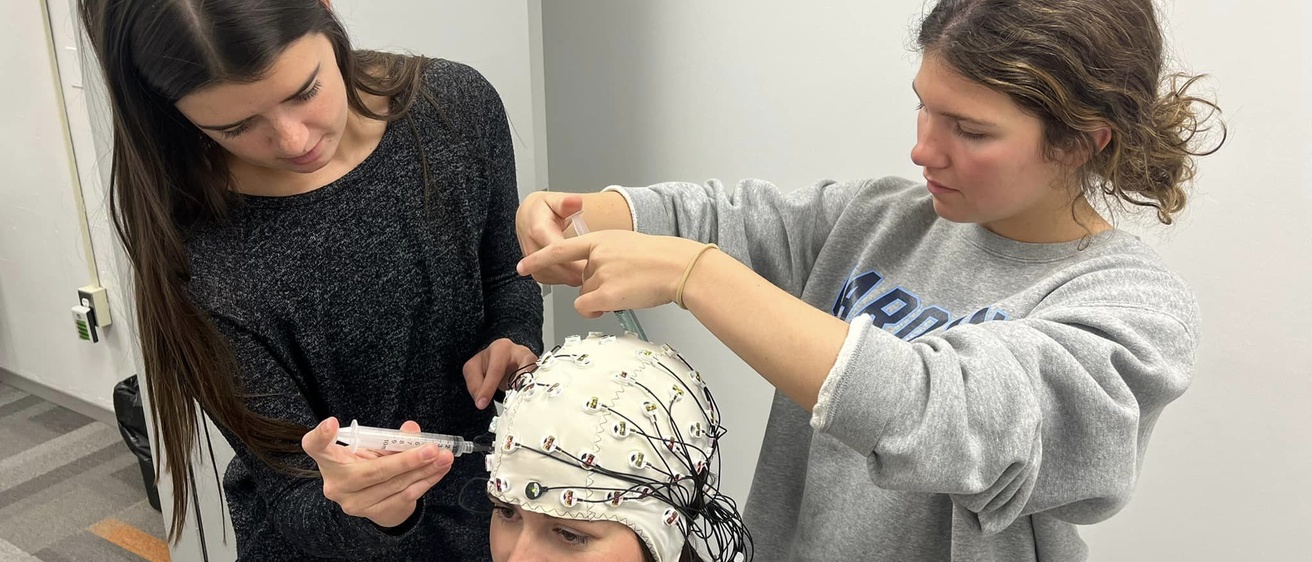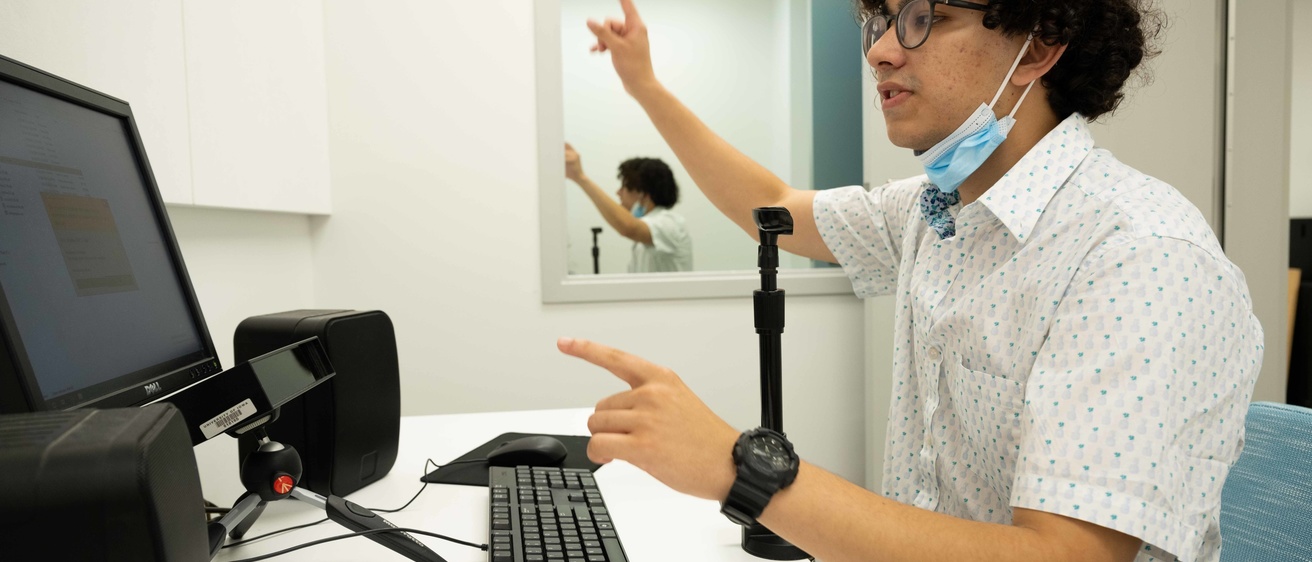


How do listeners and readers recognize the words they hear and read?
Word recognition is a complex cognitive process that is fundamental to language and reading. In our research, we focus on characterizing the core mechanisms of speaking and reading in a common set of computational principles.
How are the meanings of words accessed?
Our long-term goal is to development a theory of word recognition and language processing that not only explains how typical listeners who are monolingual adults process language, but is ecologically valid enough to extend to children, adverse listening conditions, and in populations who are multilingual.
How do individuals predict upcoming words during incremental sentence processing?
To comprehend spoken sentences efficiently, listeners predict upcoming words depending on the sentence context. However, listeners’ predictions are not always correct. For example, in a sentence like, On sunny days, Jake visits the park to walk his monkey, the word monkey is a plausible completion, but it is highly unexpected. We aim to present empirical evidence that listeners inhibit activation for a predicted word when their prediction is violated. We seek to understand which control mechanisms are responsible for this inhibition.

